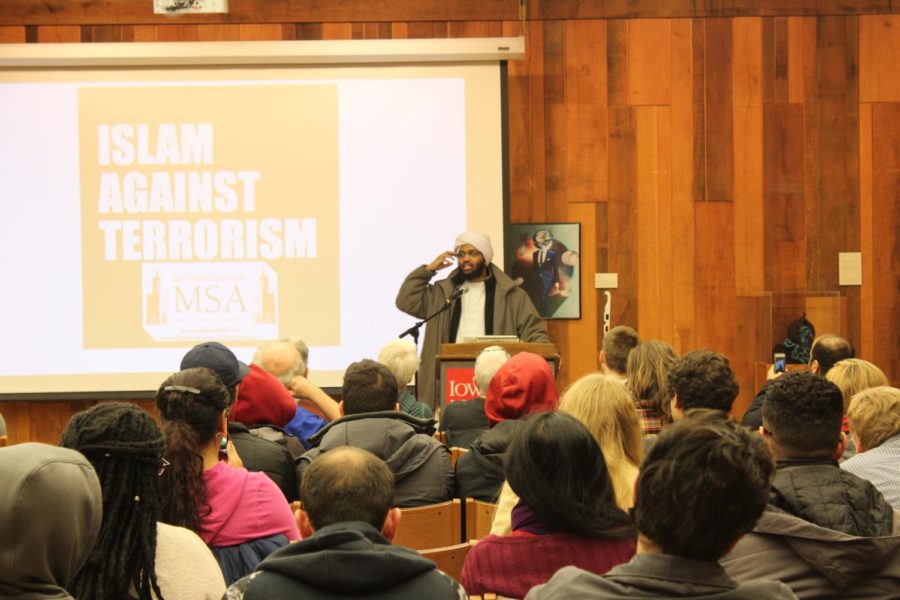Muslim Student Association addresses Islam’s correlation with terrorism
Samantha Vaith/Iowa State Daily
Topics about the Muslim religion and society were talked about at the lecture. The lecture took place in Memorial Union on March 8.
March 8, 2017
Imam Molhim Bilal, religious leader of the Iowa City Mosque, believes “humans fear what they do not know.”
Iowa State’s Muslim Student Association hosted a talk and Q&A Wednesday in the Memorial Union dubbed Islam Against Terrorism. The organization sought to educate the Iowa State community on Islamic teachings and how it is against acts of terrorism happening around the world.
Bilal was invited to lecture on those topics at Iowa State.
“What does terrorism have to do with Allah and Islam? Nothing, nothing at all,” Bilal said.
The lecture began with a short introduction from Bilal about the religion of Islam. He went into depth about Muslim belief and how it compares to Christianity. He educated those in attendance on Muslim greetings and customs. Bilal also explained that Islam is against and does not condone any act of terrorism. He said that no religion is for terrorism and no religion practices terrorism whatsoever.
Bilal said that terrorists are the No. 1 enemies of Islam because of the false images they portray of Islam. He reiterated that Muslims condemn any killings and disassociate themselves from any terrorist acts.
The 30-minute introduction from Bibal was followed with the Q&A. Many audience members asked about women’s rights in Islam. Individuals in the audience also asked why women wear hijabs in the religion and why there was no female leadership in Islam.
“Many years ago, a queen would cover her face, and the women who are honored are the ones who cover their face,” Bilal said. “Islam believes in women rights, and women have more rights than they have had in the past.”
He explained that women leadership in Islam is not very common because it is male dominated. But Islam designates leadership roles by knowledge and not by gender. He said Islam believes in women’s rights and explained that every woman does not wear a hijab by force, as it is a woman’s choice to cover herself.
“There are a lot of misconceptions, especially with the travel ban,” Bilal said. “People hear false information that starts to create a false imagination.”
When an audience member asked what the community can do to prevent misconceptions, Bilal said it is important to educate yourself, visit mosques and ask questions to have a better understanding of culture versus religion.
Humza Malik, president of the Muslim Student Association, said Bilal has spoken at a couple of their events in the past, like Jesus & Islam and Women & Islam. Malik said Bilal attends many events like these to create discussion that will bring awareness to the community.
“It’s important to host events like these that lead up to discussions,” Malik said. “The audience can leave with an open mind and without any fears.”







